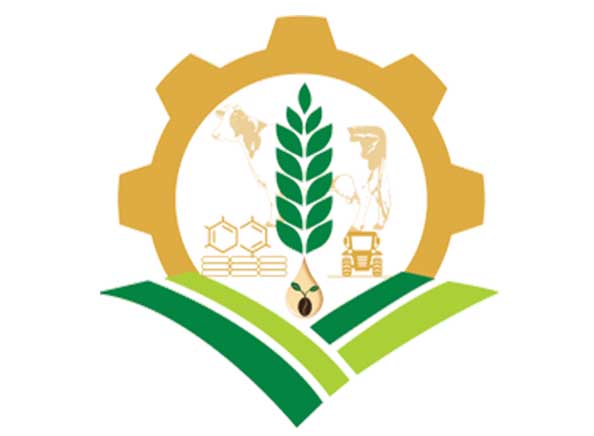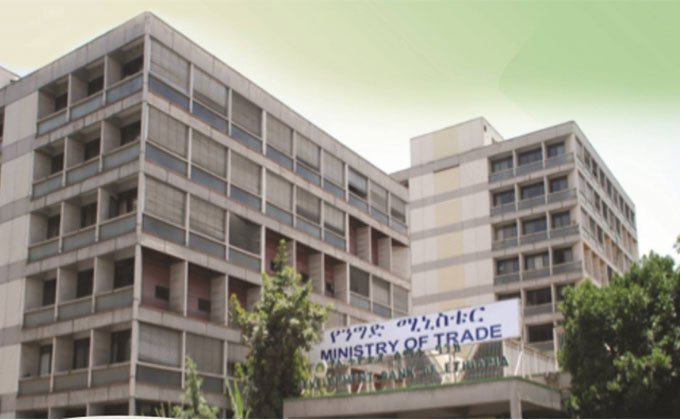
Aug 31 , 2019
By SELAMAWIT MENGESAHA ( FORTUNE STAFF WRITER )
 The Ethiopian Agricultural Business Corporation floated an international tender on August 27, 2019 for the procurement. The tender, which will be opened on September 27, 2019, calls for bids on different kinds of fertilisers.
The Ethiopian Agricultural Business Corporation floated an international tender on August 27, 2019 for the procurement. The tender, which will be opened on September 27, 2019, calls for bids on different kinds of fertilisers. The government is set to buy 50.5 million quintals of fertiliser at an estimated cost of 13.9 billion Br. The fertiliser will be used for the next three years and will be distributed to all regional states to help boost agricultural production.
The Ethiopian Agricultural Business Corporation floated an international tender on August 27, 2019 for the procurement. The tender, which will be opened on September 27, 2019, calls for bids on different kinds of fertilisers.
The Ministry of Agriculture will buy five types of fertilisers: four types of NPS and Urea.
Out of the total amount, the budgets says 15 million quintals will be procured for an estimated 3.9 billion Br for this year; 17 million quintals, expected to cost 4.5 billion Br, is designated for next year; while 2021/22 estimates the procurement of 18.5 million quintals for 5.1 billion Br.
The Corporation bought a total of 1.2 million tonnes of fertiliser at a cost of nine billion Br three years ago.
The Ministry imports fertiliser from Morocco, Egypt, China, Saudi Arabia and the United Arab Emirates. In the last fiscal year, most of the fertiliser imported by the Ministry was from Egypt and Saudi Arabia. The 2017/2018 year saw the Moroccan fertiliser giant OCP supplying 70pc of the country’s fertiliser demand.
The global leader in the phosphate industry, OCP Group has also partnered with the Ethiopian government, aiming to build a 2.5-billion-dollar fertiliser plant in Dire Dawa. Resting on 100ha of land, the plant would have an annual production capacity of 2.6 million tonnes of fertiliser.
The Ministry imports fertilisers under a Free on Board (FOB) agreement in which it takes on the responsibility of shipping the fertiliser itself once they are bought from the provider.
“This minimises the delivery time and cost of the fertiliser by eight months and 40 dollars per tonne, respectively,” said Seifu Assefa, input marketing director at the Ministry.
For the past 50 years, the Ministry used a Cost and Freight (CFR) agreement where the provider is responsible for supplying and transporting the fertiliser until it reaches the destination port.
Fertiliser is known to be a powerful productivity-enhancing input. One-third of the increase in cereal production worldwide and 50pc of the increase in India’s grain production has been attributed to fertiliser usage.
The 71.4 million farmers in Ethiopia cultivate around 13 million hectares of land, 11.5 pc of the land in the country. The agricultural sector contributes around 34pc of the country’s gross domestic product (GDP).
One expert believes that suppliers should follow transparent ways of working to avoid duplication of processes and shorten the time of delivery.
The Ministry should not be late in distributing fertiliser, so farmers can harvest on time to fulfill the demand of the country, according to Solomon Addisu (PhD), lecturer at Bahir Dar University.
“Farmers are forced to use fertilisers, due to the infertility of their land,” said Solomon. “Some farmers can’t afford not to use the fertiliser."
PUBLISHED ON
Aug 31,2019 [ VOL
20 , NO
1009]

Radar | Feb 16,2019

Fortune News | Oct 12,2019

Radar | Jul 06,2019

Fortune News | May 31,2020

Radar | Jun 05,2021

Dec 22 , 2024 . By TIZITA SHEWAFERAW
Charged with transforming colossal state-owned enterprises into modern and competitiv...

Aug 18 , 2024 . By AKSAH ITALO
Although predictable Yonas Zerihun's job in the ride-hailing service is not immune to...

Jul 28 , 2024 . By TIZITA SHEWAFERAW
Unhabitual, perhaps too many, Samuel Gebreyohannes, 38, used to occasionally enjoy a couple of beers at breakfast. However, he recently swit...

Jul 13 , 2024 . By AKSAH ITALO
Investors who rely on tractors, trucks, and field vehicles for commuting, transporting commodities, and f...

Jun 28 , 2025
Meseret Damtie, the assertive auditor general, has never been shy about naming names...

Jun 21 , 2025
A well-worn adage says, “Budget is not destiny, but it is direction.” Examining t...

Jun 14 , 2025
Yet again, the Horn of Africa is bracing for trouble. A region already frayed by wars...

Jun 7 , 2025
Few promises shine brighter in Addis Abeba than the pledge of a roof for every family...